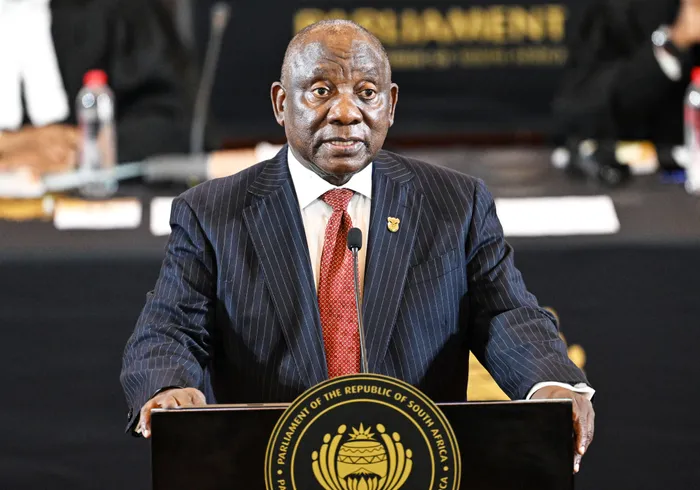Contentious Bela Bill ‘a test for GNU’

During the parliamentary debate on Ramaphosa’s Opening of Parliament address at the Cape Town City Hall on Friday, Gauteng Premier Panyaza Lesufi urged Ramaphosa to sign the bill into law. Picture: Phando Jikelo/Parliament of SA
The tension between ANC and DA over the finalisation of the Basic Education Laws Amendment (Bela) Bill is being viewed as a major test for the newly formed Government of National Unity (GNU).
The amendment bill was passed by the National Assembly in May but sits on President Cyril Ramaphosa’s desk, awaiting his signature.
Some political parties, including the DA and ActionSA and civil society organisations, have rejected the bill and threatened to challenge it in court while the ANC, SA Democratic Teachers Union (Sadtu) and other unions supported the bill which was crafted under then-education minister Angie Motshekga’s watch.
The contentious bill seeks to amend key education laws in South Africa and has sparked controversy and drew criticism from various quarters.
The Bela Bill proposes significant amendments to the South African Schools Act (Sasa) of 1996 and the Educators Employment Act of 1998.
The bill proposes the biggest update to education law in the past decade while critics say that it will remove all School Governing Body (SGB) powers and place the powers to govern in the hands of department heads.
The DA’s chairperson of the federal council Helen Zille said that the bill is non-negotiable and a red line for them.
“The Bela Bill is non-negotiable for us, the right of school governing bodies to determine the language policy at schools is a red line for us and the ANC has been aware of that from day one,” said Zille.
During the parliamentary debate on Ramaphosa’s Opening of Parliament address at the Cape Town City Hall on Friday, Gauteng Premier Panyaza Lesufi urged Ramaphosa to sign the bill into law.
“Comrade President, there is something that is called the Basic Education Amendment laws. I’m asking you, President politely and respectfully.
“Sign that law. There must be no institution here president when the 6th administration and this particular House has passed this particular law. And the law is very simple.
“President, we are prepared to listen to any other person that wants to raise any view. “But the law is simple. All our children must be in the same classroom and taught by the same teacher. What is wrong with that particular proposal and that the language of teaching must incorporate all 12 languages?
That there must be no language that is excluded. What’s wrong with that particular proposal? That every child that is in ECD must be in a formal education system starting from the ECD. What is wrong with that proposal?” Lesufi asked Ramaphosa.
Education Minister Siviwe Gwarube, who also responding during the debate, suggested that Ramaphosa has a number of options available to him.
“He can ascend to the bill, but also he can send it back to Parliament with specific details and instructions on where the sector has been uncomfortable and where they must fix some of its shortcomings,” Gwarube said.
Political analyst Zakhele Ndlovu, from the University of KwaZulu-Natal, said the bill is one of the many policies that will be a test for the GNU that is led by the ANC. Ndlovu stressed the importance of political maturity and finding common ground among GNU members as they have just begun their five-year term.
“The GNU members have to minimise the room for public arguments. It is well known that the ANC and the DA have fundamental disagreements when it comes to policies such as foreign affairs, NHI and now the Bela Bill. It is very important that these two find common ground, we know that they are new to this but they have got to have some political maturity. This is a time where they need to go back and have a discussion about this bill,” said Ndlovu.
The Mercury